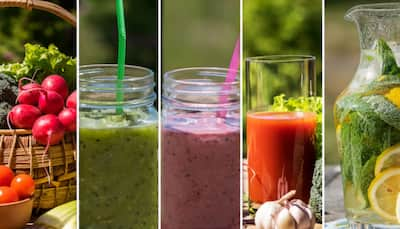A plan to transform the food system in Brighton has been launched. The Brighton and Hove Food Strategy Action Plan aims to support food producers, reduce waste, tackle food poverty, boost food growing, and give all residents access to healthy meals. The plan is led by the Brighton and Hove Food Partnership and overseen by a panel of food experts.
It sets out how organisations will work together to create a "healthy, sustainable, and fair food system" for the city. The action plan was first launched in 2006 and is refreshed every five years. The latest plan was drawn up following extensive consultation, which saw around 250 experts and members of the public sharing their views and priorities.

Their feedback has been used to create actions that will have the biggest impact. Currently, only 36 per cent of adults in the city eat five or more portions of fruit and vegetables a day, and almost one in three 11-year-olds are obese or overweight. While a third of household waste in Brighton and Hove is food and drink, the number of people seeking emergency food support each week in the city has rocketed from 358 in 2018 to 6,300.
Ali Ghanimi, senior manager of the Brighton and Hove Food Partnership, said: "The past five years have seen great shocks to our food system: the Covid-19 pandemic, the war in Ukraine, the cost-of-living crisis, and the UK's second worst harvest on record. "Our city has pulled together to rise to these challenges and keep people fed, but these shocks have highlighted just how fragile the global food system is. "From field to fork, our plan has prioritised transformative actions that will make our food system more resilient and fair, working with residents, businesses, schools, food buyers, and farmers.
" Initiatives already making a difference include the "Taste Ed" programme, which is increasing children's consumption of fresh fruit and vegetables. Primary school meals have reduced meat by 25 per cent and introduced two portion sizes to reduce waste. The Brighton and Hove Food Partnership's Community Kitchen has provided more than 1,000 community cookery sessions for people in need.
There are now 55 community composting schemes serving 1,300 households, turning 187 tonnes of food waste into high-quality compost for local food growing..
Health

Plan to transform food system for city residents launched

Brighton and Hove has launched a refreshed food strategy to support producers, cut waste, tackle food poverty, and improve access to healthy meals for all.















